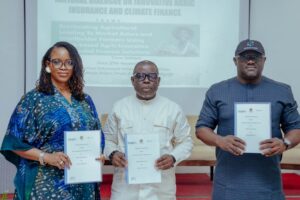
A report by Labour Market Information System (LMIS) indicates that the average wage among workers in the private and public sector in Lagos state rose sharply by 40 percent from N125,000 in 2024 to N175,000 in 2025.
These figures were presented during the 7th Public-Private Dialogue (PPD) convened by the Lagos State Employment Trust Fund (LSETF) in partnership with GIZ and other stakeholders, which gathered 28 representatives from government, the private sector, academia and civil society.
The stakeholders also recommended introducing a Lagos-specific minimum wage of N100,000 by 2025, subject to periodic reviews against inflation and cost-of-living indices. Proposals also included tax rebates for low-income earners, transport incentives to ease commuting costs, housing policy reforms, and stronger enforcement measures for wage violations.
Despite the average increase of salaries to N175,000, participants cautioned that inflation and rising living costs continue to erode real income gains. Variations in wages remain pronounced across the city, with higher salaries concentrated in areas such as Victoria Island, Yaba and in remote roles, while education and professional experience continue to play a decisive role in salary outcomes.
Stakeholders warned of widespread non-compliance with the Minimum Wage Act, particularly among nano and micro-enterprises with low productivity and little legal oversight.
Feyisayo Alayande, executive secretary of LSETF, stressed the central role of the LMIS in evidence-based labour policymaking. Echoing this, Oyin Egbeyemi, LSETF’s director of Programmes and Coordination, noted the platform’s role in providing accurate data for career guidance, job search and government policy.
A presentation by Mathiew Michel, head of Employability Programmes at LSETF, showcased LMIS features, including data on job offers, gender balance, training needs and salary reports.
Read also: Top 10 banks with the highest salaries for entry-level staff
Beyond wages, discussions also turned to green jobs. The LMIS recorded 73 job offers in the green economy this year, with 137 young people trained in areas such as plastic recycling, biogas production and sustainable fashion under the LSETF-GIZ Employability Support Project. The sector was described as niche but expanding, calling for targeted investment to accelerate growth.
Gender equality in the labour market was another priority. Persistent disparities remain, particularly in digital and technology sectors, where unequal access to tools and security concerns hinder women’s participation. Stakeholders urged greater support for female entrepreneurs through initiatives such as the Female Funders & Founders programme.
Curriculum alignment with labour market needs was addressed, highlighting gaps in technical, soft and behavioural skills. Concerns were raised about bureaucratic delays in updating curricula, weak academia–industry collaboration, and limited trainer capacity. Recommendations included regular curriculum reviews based on LMIS data, alignment with National Skills Qualification standards, integration of Recognition of Prior Learning (RPL) frameworks, and inclusive curriculum development involving persons with disabilities.
Attendees further emphasised the importance of capturing the informal sector within LMIS frameworks and shifting from job-centred curricula to entrepreneurship-driven models to promote job creation.
A set of implementation timelines was agreed, with key reforms such as minimum wage review, curriculum alignment and housing policy development expected to begin rolling out from early 2026.
Ngozi Ekugo
Ngozi Ekugo is a Snr. Correspondent at Businessday, covering labour market, careers and mobility.
She is an associate member of the Chartered Institute of Personnel Management (CIPM), has an MSc Management from the University Hertfordshire and is an alumna of University of Lagos and Queen’s college.




